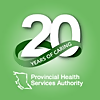- Search jobs
- Victoria, British Columbia
- Temporary/Full-Time
- Secretary, Op-Oncology Clinic - BC Cancer Victoria

Secretary, Op-Oncology Clinic - BC Cancer Victoria
PHSAVictoria, British ColumbiaSecretary, Op-Oncology Clinic
BC Cancer
Victoria, BC
As a collaborative member of the health care team, the Secretary provides secretarial and administrative support within a team setting. Maintains a safe environment for patients, families and staff by adhering to safety policies, procedures, guidelines and emergency procedures.
What you’ll do
- Receive calls from all sources including patients; refers calls to other parties or provides information as appropriate and :
a. Determines urgency of incoming calls and takes appropriate action.
b. Relays information to and from clinical staff and outside facilities.
c. Obtains reports by contacting appropriate departments or outside sources.
d. Coordinates appointments and tests for patients in collaboration with the clinical team.
e. Accesses patient information system to retrieve patient data, as appropriate.
f. Greets visitors and handles enquiries
What you bring
Qualifications :
You have :
What we bring
Every PHSA employee enables the best possible patient care for our patients and their families. Whether you are providing direct care, conducting research, or making it possible for others to do their work, you impact the lives of British Columbians today and in the future. That’s why we’re focused on your care too – offering health, wellness, development programs to support you – at work and at home.
Location : 2410 Lee Avenue, Victoria, BC V8R 6V5
Applications accepted until position is filled
Hours of Work : Monday-Friday; 0800-1600, 0830-1630, 0900-1700
What we do
provides comprehensive cancer control for the people of British Columbia.
BC Cancer is part of the Provincial Health Services Authority (PHSA).
plans, manages and evaluates specialized health services with the BC health authorities to provide equitable and cost-effective health care for people throughout the province. Our values reflect our commitment to excellence and include : Respect people – Be compassionate – Dare to innovate – Cultivate partnerships – Serve with purpose.
Learn more about PHSA and our programs :
PHSA and BC Cancer are committed to employment equity, encouraging all qualified individuals to apply. We recognize that our ability to provide the best care for our diverse patient populations relies on a rich diversity of skills, knowledge, background and experience, and value a safe, inclusive and welcoming environment.
Reconciliation is an ongoing process and a shared responsibility for all of us. The BC Governments’ unanimous passage of the Declaration on the Rights of Indigenous Peoples Act was a significant step forward in this journey—one that all health authorities are expected to support as we work in cooperation with Indigenous Peoples to establish a clear and sustainable path to lasting reconciliation. True reconciliation will take time and ongoing commitment to work with Indigenous Peoples as they move toward self-determination. Guiding these efforts Crown agencies must remain focused on creating opportunities that implement the Truth and Reconciliation Commission Mandate.